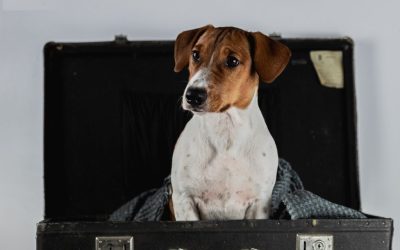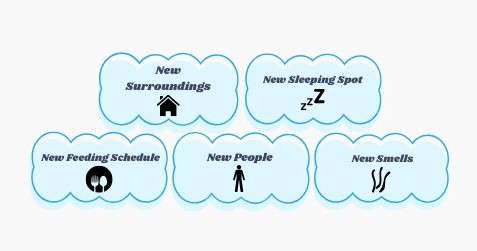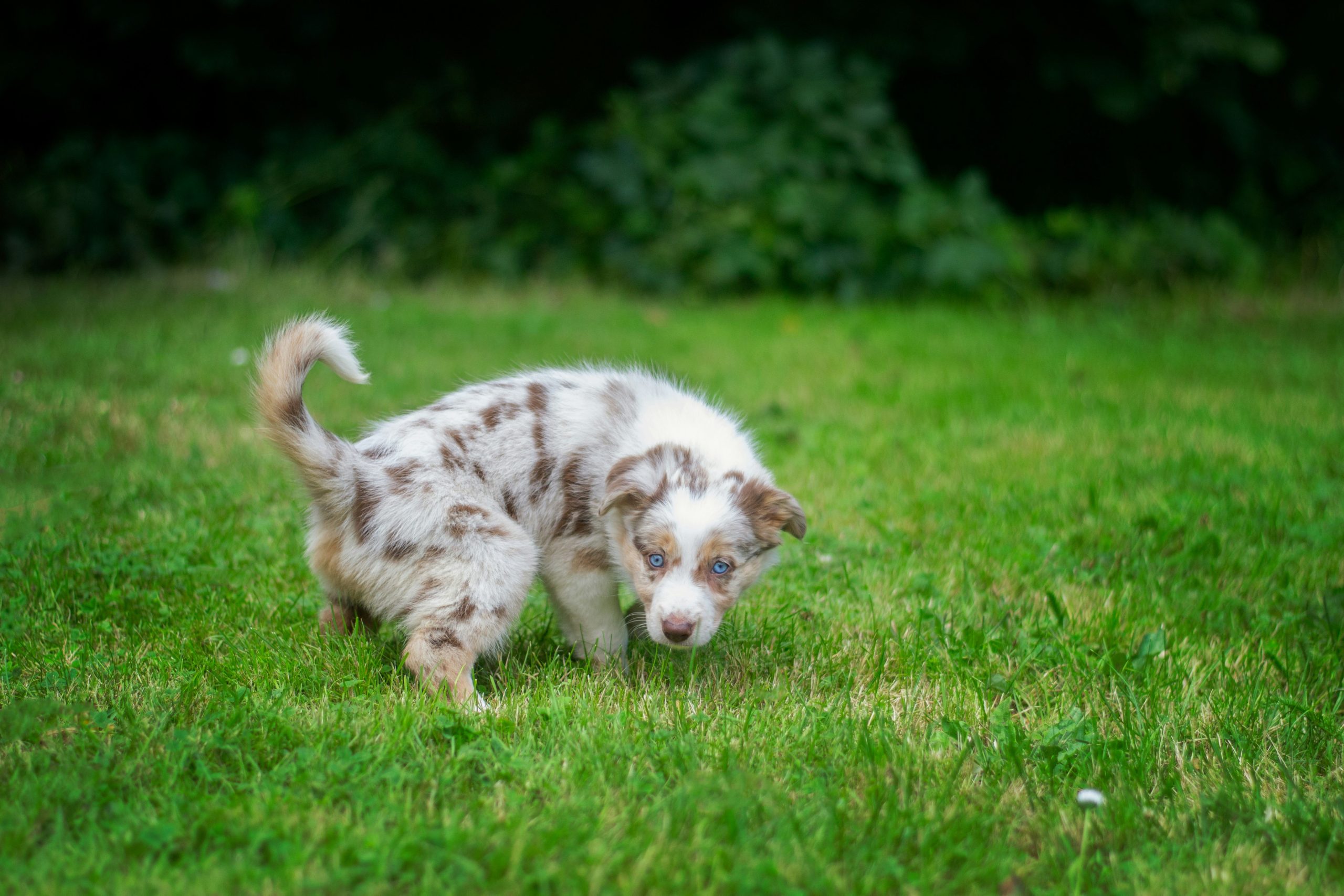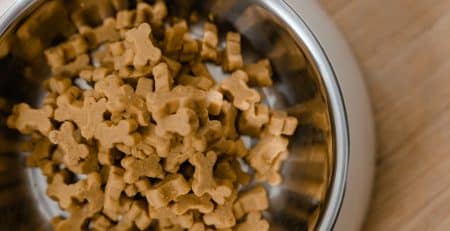Why is my puppy having potty accidents after arrival?
The Truth About Transition Regression
You’ve just welcomed your new puppy home. They were described as potty trained, but suddenly—accidents on the floor, confusion, and frustration. What went wrong?
Don’t worry—you’re not alone, and your puppy hasn’t forgotten everything they learned. What you’re seeing is something called transition regression, and it’s completely normal. Let’s break down what’s happening and how you can get things back on track quickly and kindly.
What Is Transition Regression?
Transition regression refers to a temporary setback in potty training after a puppy experiences a big change—like moving to a new home. Even if your puppy was doing great at using pee pads or going outside before travel, the sudden shift in environment, routine, and even smell can throw off their internal “rules.”
Think of it like a child who was fully toilet trained suddenly having accidents after starting preschool. It’s not about being bad—it’s about adjusting.

How Stress and Change Affect Toilet Behavior
Your puppy has just been through a lot. Even with the most careful transport, travel is exhausting and confusing for a young dog. Combine that with:

…and it’s no wonder their routine gets a little scrambled.
Stress affects a puppy’s body just like it affects humans. Their bladder may feel more full than it is. They might become overly excited or scared. And when they’re unsure of the “rules” in this strange new place, accidents happen.
Why Puppies Hesitate Outside: Vulnerability and Safety
Going potty might seem like a simple task, but for a newly arrived puppy, it’s actually one of their most vulnerable moments—and can lead to temporary stress-related toileting refusal. Peeing or pooping requires them to let their guard down—something they’re not ready to do in an unfamiliar environment.
Your backyard or street might be perfectly safe to you, but to your puppy, it’s full of strange smells, unfamiliar sounds, and possible threats. It takes time for them to assess the space, sniff around, and decide that it’s okay to let go—literally and emotionally.
This hesitation can mean they take longer to do their business, or that they hold it until they’re back inside—where they feel more secure. To help your puppy feel safer outside:
-
Stay calm and present with them, offering quiet encouragement.
-
Keep outings short and positive at first—no pressure, no rushing.
-
Use the same spot each time to build familiarity.
-
Avoid loud noises or distractions during potty breaks.
With time and repetition, your puppy will start to see this new environment as safe—and once that happens, their confidence (and potty habits) will follow.
When It’s Not Just Stress: Signs of Medical Issues
It’s rare, but important to mention: not all potty accidents are behavioral. Keep an eye out for these warning signs of possible health issues:
- Frequent urination in very small amounts
- Blood in urine or stools
- Straining or whining while going
- Diarrhea for more than 24 hours
- Lethargy or lack of appetite
If you notice any of these symptoms, it’s worth checking in with a vet to rule out infections or other problems. But in most cases, it’s simply an adjustment issue.
How to Re-establish Potty Routines Quickly
The good news? Your puppy isn’t starting from zero. They have the basics—you just need to remind and reinforce:
- Create a routine: Take your puppy out at the same times every day—after waking, after meals, after play.
- Use the same potty spot: Consistency helps them associate that place with going.
- Praise and reward: Celebrate successes like you did during early training. Treats and verbal praise work wonders.
- Supervise and limit freedom: Until they’re consistent again, don’t let them wander unsupervised. Use crates or small gated areas when needed.
- Clean thoroughly: Use enzymatic cleaners to remove odors and prevent repeat accidents in the same spot.
How Long Will It Take?
Every puppy is different, but most start getting back on track within 3 to 7 days. Full consistency may take a couple of weeks—especially in very young pups or if their routine changed dramatically.
Be patient. With structure, encouragement, and a little time, your puppy will adapt beautifully to their new home.
Final Thoughts
Potty training setbacks after arrival can be frustrating—but they’re also completely normal. Understanding your puppy’s stress and giving them a little grace goes a long way. Remember, your new best friend is still learning, and you’re their guide.
Keep showing them love, patience, and structure—and those accidents will soon be a thing of the past.






















